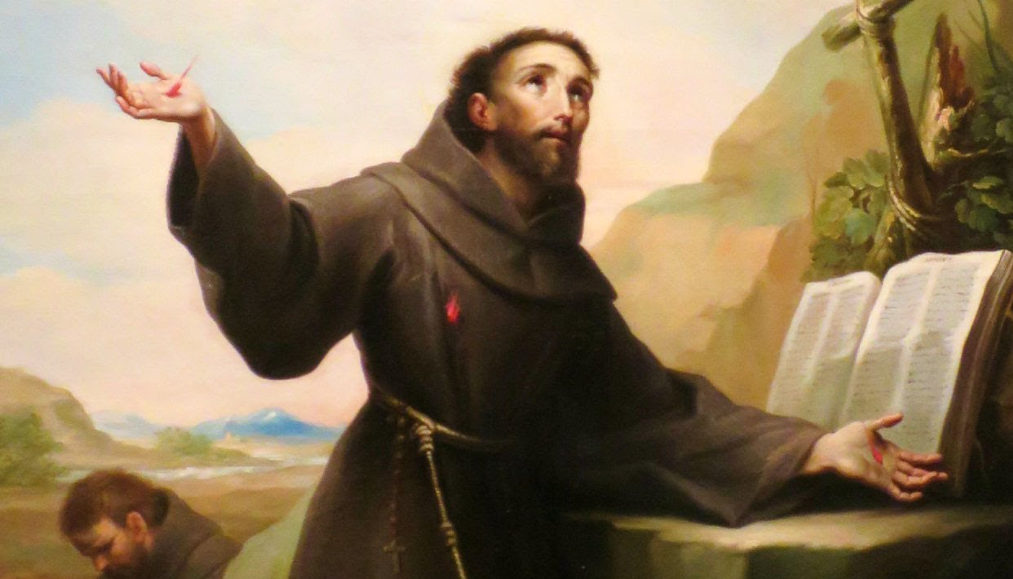On Oct. 4, Roman Catholics celebrate the feast of St. Francis of Assisi, the Italian deacon who brought renewal to the Church through his decision to follow Jesus’ words as literally as possible.
In a January 2010 general audience, Pope Benedict XVI recalled this “giant of holiness” as a “great saint and a joyful man,” who taught the Church that “the secret of true happiness” is “to become saints, close to God.”
The future Saint Francis was born on an uncertain date in the early 1180s, one of the several children born to the wealthy merchant Pietro Bernardone and his wife Pica. He originally received the name Giovanni (or John), but became known as Francesco (or Francis) by his father’s choice.
Unlike many medieval saints, St. Francis was neither studious nor pious in his youth. His father’s wealth gave him access to a lively social life among the upper classes, where he was known for his flashy clothes and his readiness to burst into song. Later a patron of peacemakers, he aspired to great military feats in his youth and fought in a war with a rival Italian city-state.
A period of imprisonment during that conflict turned his mind toward more serious thoughts, as did a recurring dream that suggested his true “army” was not of this world. He returned to Assisi due to illness in 1205, and there began consider a life of voluntary poverty.


